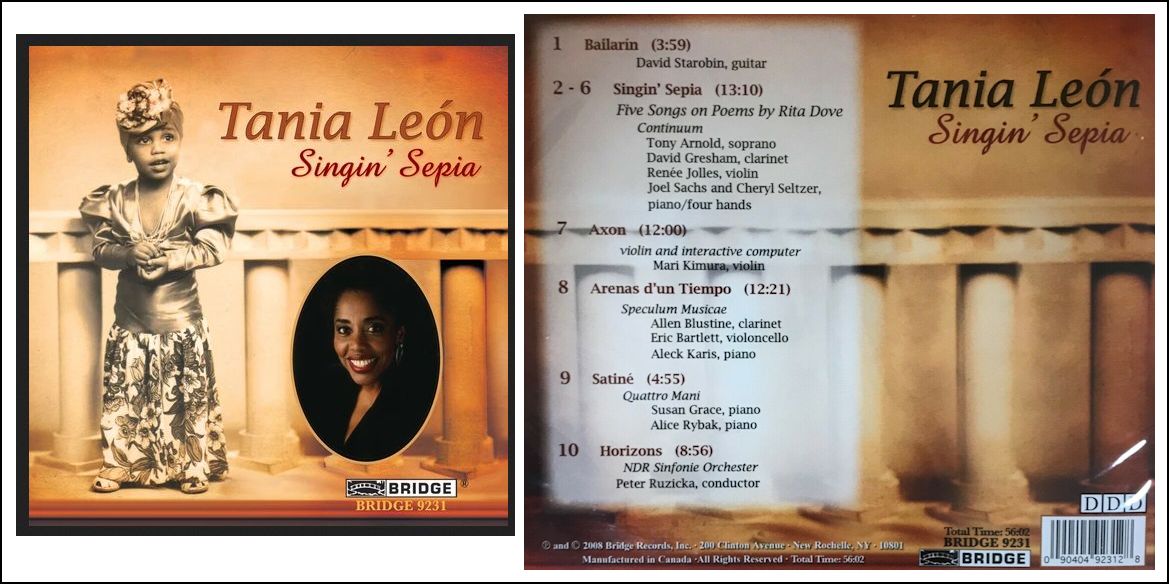

|
Tania León (b. May 14, 1943 in Havana, Cuba), a vital personality on today’s music scene, is highly regarded as a composer and conductor and for her accomplishments as an educator and advisor to arts organizations. She has been the subject of profiles on ABC, CBS, CNN, PBS, BB3, Telemundo, independent films, and Univision, including their noted series “Orgullo Hispano,” which celebrates living American Latinos whose contributions in society have been invaluable. León’s orchestral work Stride, commissioned by the New York Philharmonic in celebration of the centennial of the 19th Amendment, was awarded the 2021 Pulitzer Prize in Music. Recent commissions include Anima for Jennifer Koh’s Alone Together in response to the Coronavirus pandemic; Ritmicas for The Chicago Center for Contemporary Composition's Grossman Ensemble; Ser for the Los Angeles Philharmonic; Pa’lante for the International Contemporary Ensemble and YOLA (Youth Orchestra Los Angeles); and Ethos for pianist Ursula Oppens and Cassatt String Quartet. Upcoming premieres feature commissions by Arkansas Symphony for the New Music USA Amplifying Voices Program; The Musical Fund Society in Philadelphia to celebrate their 200th anniversary; The Crossing chamber choir with Claire Chase, flutist; Isabella Stewart Gardner Museum; and Brooklyn Youth Chorus, featuring text by New York Youth Poet Laureate Aaliyah C. Daniels. León's opera Scourge of Hyacinths,
based on a play by Wole Soyinka with staging and design by Robert Wilson, received
over 20 performances throughout Europe and Mexico. Commissioned by Hans Werner Henze and the
city of Munich for the Fourth Munich Biennale, it took home the coveted BMW
Prize, and the aria “Oh Yemanja” (“Mother's Prayer”) was recorded by
Dawn Upshaw on
her Nonesuch CD, The World So Wide.
Past commissions include works for The John F. Kennedy Center for the Performing Arts, Library of Congress, National Endowment for the Arts, NDR Symphony Orchestra, American Composers Orchestra, New World Symphony, Cincinnati Symphony, Orpheus Chamber Orchestra, Ensemble Modern, Fest der Kontinente (Hamburg, Germany), The Koussevitzky Music Foundation, Fromm Music Foundation, Los Angeles Master Chorale, DanceBrazil, and Dance Theatre of Harlem. León’s compositions have been performed by such orchestras as the Gewandhausorchester, Orchestre de la Suisse Romande (Switzerland), China National Symphony, NDR Symphony Orchestra (Germany), Symphonic and Lyric Orchestra of Nancy (France), and Orquesta de la Opera, Palacio de Bellas Artes (Mexico). As a composer, she has also collaborated with poets, writers and directors, including John Ashbury, Margaret Atwood, Rita Dove, Wendy Kesselman, Jamaica Kincaid, Mark Lamos, Fae Myenne Ng, Julie Taymor, Derek Walcott, and Robert Wilson. Past highlights include a Composer Portrait at Columbia University's Miller Theatre in New York City, and the hour-long, multimedia work Drummin', featuring percussionists of diverse cultures and performed by New World Symphony in Miami and members of the NDR Symphony Orchestra in Hamburg, Germany. León was one of the first artists to be featured by Harlem Stage in Aaron Davis Hall’s initiative WaterWorks, and her work was featured in the celebration of some of the most prestigious composers of our time, including Pierre Boulez’s 80th birthday, “Gyorgy Ligeti’s 80th Birthday, and the Copland Centennial. As a guest conductor, Tania León has appeared with the Philharmonic Orchestra and Chorus of Marseille and Colonne Orchestra (France), Gewandhausorchester and Beethovenhalle Orchestra (Germany), Orchestre de la Suisse Romande and Geneva Chamber Orchestra (Switzerland), Orquesta Sinfonica de Asturias and Orquesta y Coro de la Communidad de Madrid (Spain), Santa Cecilia Orchestra (Italy), Sadler's Wells Orchestra (England), Guanajuato Symphony Orchestra (Mexico), Orquesta Filarmónica de Bogotá (Colombia), Orquesta Sinfónica de El Salvador (El Salvador), Orquesta Sinfónica de Cuba, Johannesburg Philharmonic Orchestra, and KwaZulu-Natal Philharmonic Orchestra (South Africa), and the New York Philharmonic, among others. In 1969, Tania León became a founding member and first Music Director of the Dance Theatre of Harlem, establishing the Dance Theatre’s Music Department, Music School and Orchestra. She instituted the Brooklyn Philharmonic Community Concert Series in 1978, and founded the Sampler Concerts series presented by the Whitney Museum of American Art at Atria. In 1994, in her capacity of Latin American Music Advisor, she co-founded the American Composers Orchestra’s Sonidos de las Américas festivals. From 1993 to 1997, she was New Music Advisor to Kurt Masur and the New York Philharmonic. Tania León is the founder and Artistic Director
of the nonprofit organization and festival Composers Now, created in New
York City in 2010. Composers Now is dedicated to the empowerment of living
composers by celebrating the diversity of their voices and honoring the significance
of their artistic contributions to the cultural fabric of society. In 2017,
a proclamation on behalf of Mayor Bill de Blasio was presented to Composers
Now in recognition of their contributions to living composers.
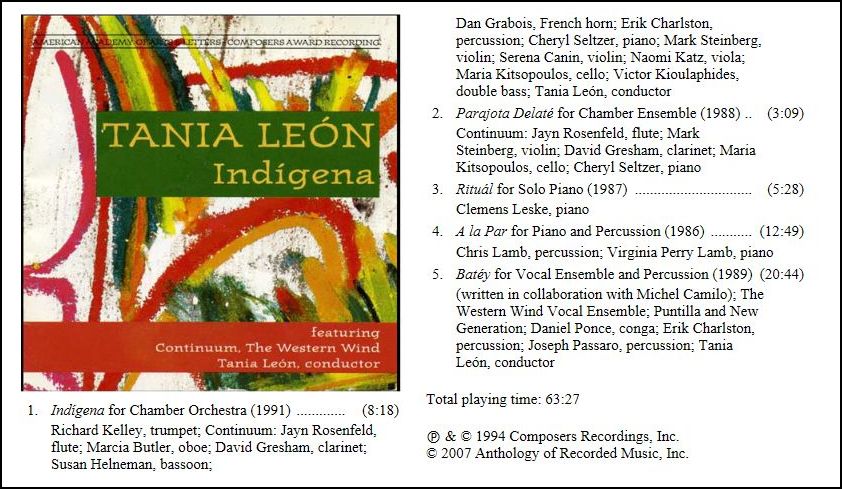
León has lectured at the prestigious Mosse-Lectures at Humboldt-University in Berlin and at Harvard University and University of Chicago. In 2012 she was the Andrew Mellon Foundation's Distinguished Scholar at University of the Witwatersrand in Johannesburg, South Africa. She has been Visiting Professor at Yale University, University of Chicago, University of Michigan, University of Kansas, Purchase College, and the Musikschule in Hamburg, Germany, among others, and she served as Composer’s Mentor at the Jazz Composers Orchestra Institute. She was also a Guest Composer/Conductor at the Musikschule in Hamburg, and at Central Conservatory of music in Beijing, China. In 2020, she was the Robert M. Trotter Lecturer at College Music Society. León has received Honorary Doctorate Degrees from Colgate University, Oberlin, and SUNY Purchase College, and served as U.S. Artistic Ambassador of American Culture in Madrid, Spain. A Professor at Brooklyn College and at The Graduate Center, CUNY since 1985, she was named the Claire and Leonard Tow Professor in Music in 2000, Distinguished Professor of the City University of New York in 2006, and Professor Emerita in September 2019. Honors include the New York Governor's Lifetime Achievement Award; American Academy of Arts and Letters Award in Music; fellowships and awards from The Koussevitzky Music Foundation, Guggenheim Foundation, Fromm Music Foundation, National Endowment for the Arts, Chamber Music America, NYSCA, Lila Wallace/Reader's Digest Fund, ASCAP and Meet the Composer; Symphony Space's Access to the Arts; and artist residencies at Bellagio, Citivella Ranieri, MacDowell, and the American Academy in Rome in Italy, among others. In 2010 León was inducted into the American Academy of Arts and Sciences. She received a 2008 Pulitzer Prize nomination for Ácana, and both a Grammy nomination for “Best Contemporary Classical Composition” and a Latin Grammy nomination for “Best Classical Contemporary Composition” in 2012 for Inura. She is also the recipient of the 2013 ASCAP Victor Herbert Award, the 2017 MadWoman Festival Award in Music in Madrid, Spain, and, most recently, she was awarded a 2018 United States Artists Fellowship. León serves as an honorary chair for the
Recording Academy’s Songwriters & Composers Wing. == Text of this biography is
from the artist's official website. |
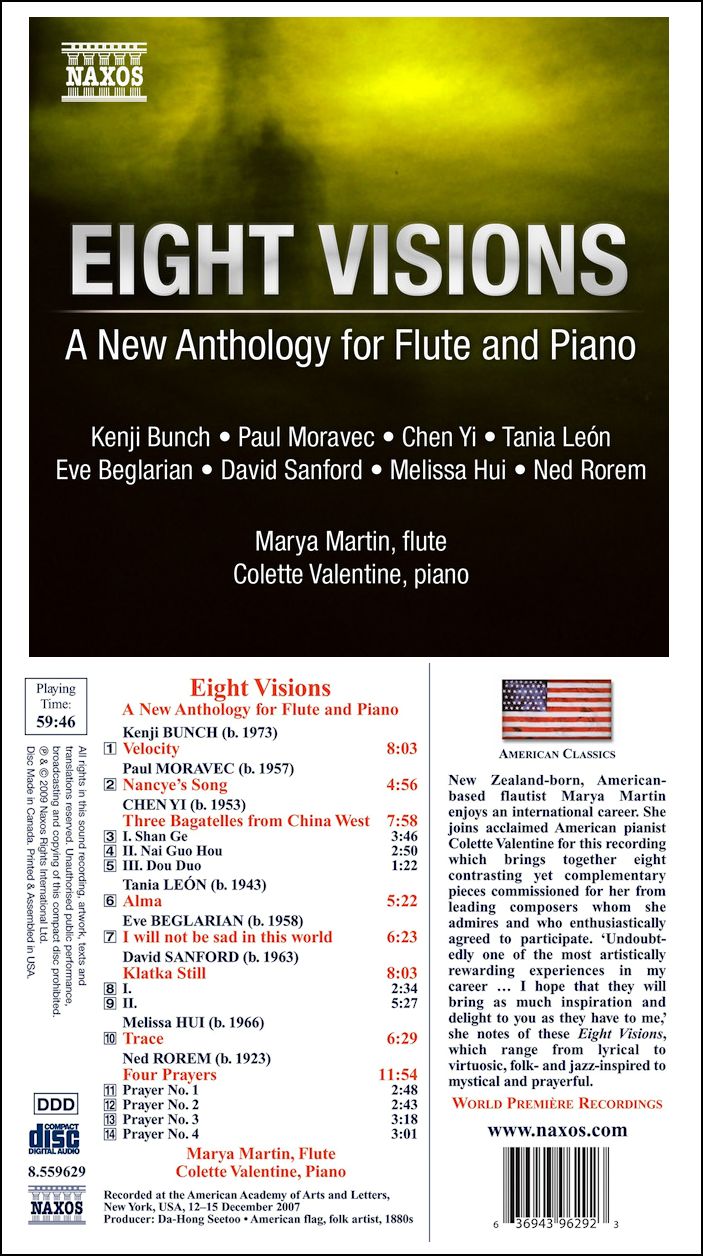
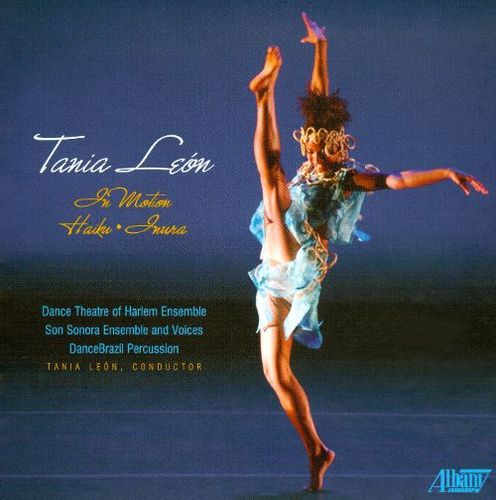 BD: When did it take over?
BD: When did it take over?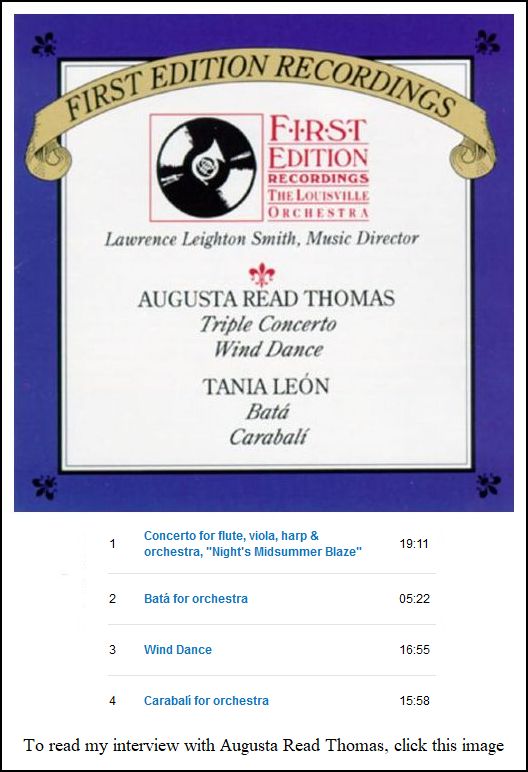
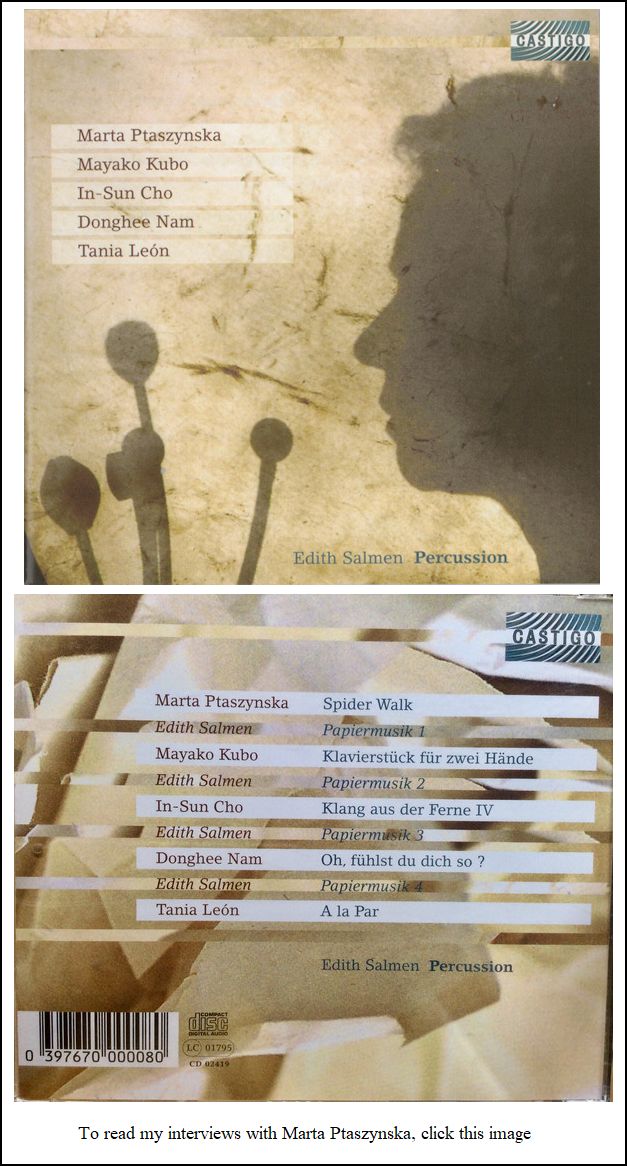 BD: They smother you?
BD: They smother you?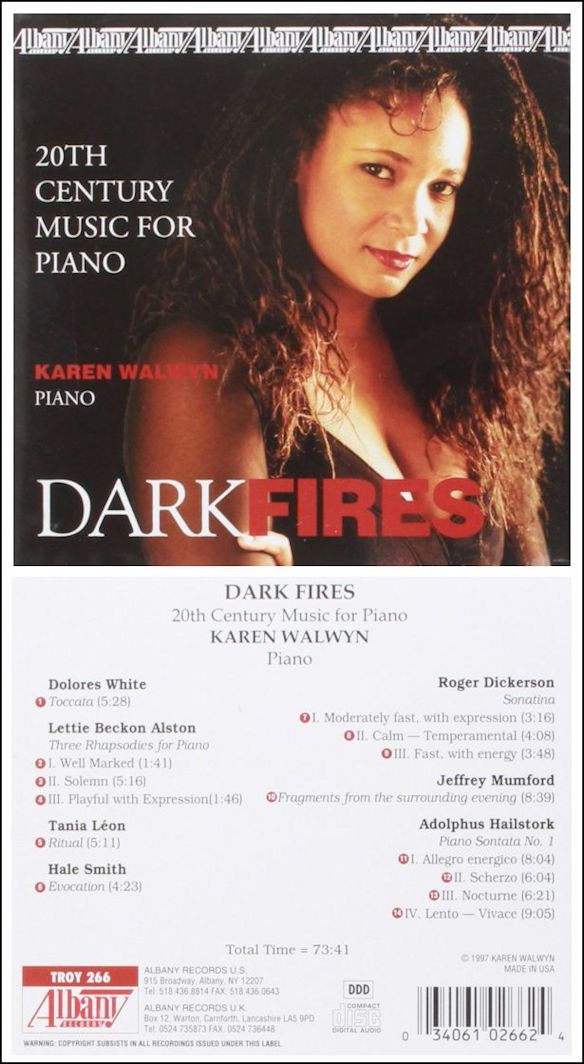
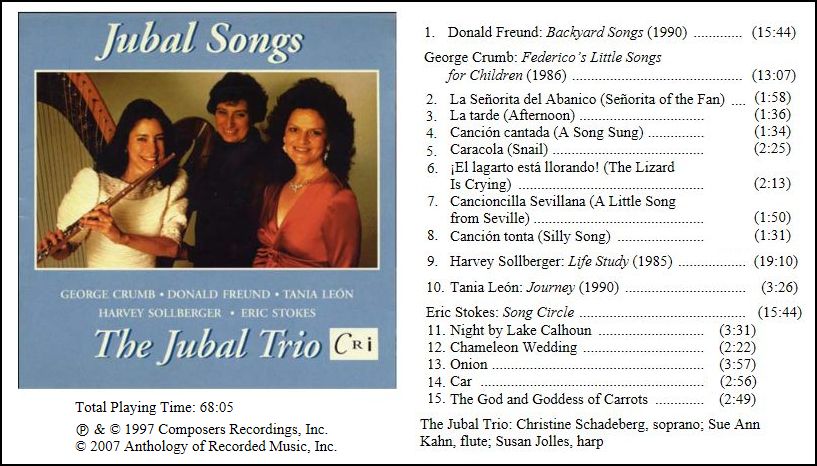
See my interviews with George Crumb, and Harvey Sollberger
© 1991 Bruce Duffie
This conversation was recorded in Chicago in August of 1991. Portions were broadcast on WNIB in 1993 and 1998; and on WNUR in 2007 and 2013. This transcription was made in 2021, and posted on this website at that time. My thanks to British soprano Una Barry for her help in preparing this website presentation.
To see a full list (with links) of interviews which have been transcribed and posted on this website, click here.
Award - winning broadcaster Bruce Duffie was with WNIB, Classical 97 in Chicago from 1975 until its final moment as a classical station in February of 2001. His interviews have also appeared in various magazines and journals since 1980, and he now continues his broadcast series on WNUR-FM, as well as on Contemporary Classical Internet Radio.
You are invited to visit his website for more information about his work, including selected transcripts of other interviews, plus a full list of his guests. He would also like to call your attention to the photos and information about his grandfather, who was a pioneer in the automotive field more than a century ago. You may also send him E-Mail with comments, questions and suggestions.